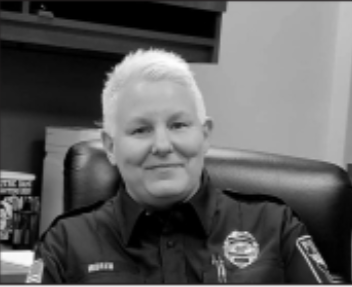First female police chief appointed
On May 2, the Shorewood Police Department welcomed Heather Wurth, the first female police chief to serve the Village of Shorewood. After working for the Milwaukee Police Department for 28 years, Wurth briefly retired from law enforcement, but the opportunity to work more intimately in a smaller community drew her back in.
“[Shorewood] being a square mile and a half… it gives one a greater opportunity to know more people and to be more engaged with the community,” Wurth said. “Which I think is one of my strong suits: that community building and community relationships.”
Wurth intends to make sure that the police department provides a safe environment for all members of the community.
“What we want to do is ensure that our policing and our law enforcement is done so that it’s free of racial bias, [and] so that we’re engaging in some of the best practices in law enforcement, [and] that it’s procedurally just,” Wurth said.
Although Wurth is in the introductory phase of her term and has yet to announce her definitive plans for the department, she wants to prioritize mental health care within law enforcement for both officers and citizens. A new feature Wurth is considering bringing to Shorewood is CART (Crisis Assessment Response Team), a unit in the Milwaukee Police Department. CART utilizes the aid of social workers to assess mental health-related situations.
“…Law enforcement officers worked directly with social workers and responded to calls for service where an individual may be in some type of mental crisis, and the social worker was able to then evaluate that individual and make the determinations about whether or not there’s going to be follow up with their caseworker at a later time, or whether that individual needs to go out to a mental health treatment facility,” Wurth said. “As far as whether or not we bring that to Shorewood, that’s something that I wouldn’t be opposed to.”
Along with managing the mental health of civilians, Wurth wants to focus on the wellbeing of Shorewood’s police officers.
“The stress and the trauma that police officers experience is cumulative,” Wurth said. “How do we best manage [officers] so that they are the best version of themselves and are providing the best service to our residents and our visitors here in the village of Shorewood?”
As an experienced member of the law enforcement field, Wurth recognizes common drivers of mental health issues within departments. One of the biggest difficulties officers face is the repeated exposure to violence and traumatic events. This unavoidable element of law enforcement is made worse by the significant amount of gun related crimes committed in the Milwaukee area.
“Officers have to respond to that gun violence and see individuals in the worst condition that they could probably be in… that takes its toll,” Wurth said. “Having to experience that time and time and time again [is] certainly challenging.”
An important factor in the success of a police department is its connection with the community surrounding it –– a conversation that has gotten more attention within recent years. Wurth intends to improve upon the relationship between residents and the police.
“It’s all of our responsibility as law enforcement officers to build relationships, and we do it one contact at a time,” Wurth said. “The contact that an officer may have with an individual and if it’s a positive one or a negative one, it permeates and it ripples.”
One of the more personal challenges that Wurth has faced in her career is her experience as a woman in a male-dominated field. Despite any prejudices that have been held against her, Wurth has not let her gender define her career.
“I came into law enforcement with the idea that I wanted to be seen first as a good person, and then I wanted to be recognized as a good police officer,” Wurth said. “And so with that in mind, my gender, while it played a role, didn’t affect me as much as it might have affected others… there may have been feelings of bias towards me, but I didn’t let it get to me.”
Throughout her career, Wurth has noticed less career opportunities compared to her male colleagues, influenced by the stigma that women don’t perform as well as men in hands-on jobs.
“I had to work very hard and there were certain roles that I was relegated to in my career, as a note taker or a typer… some of those less physical things, where my male counterparts had taken on those more physical roles,” Wurth said.
Despite the many obstacles Wurth has faced, she has always felt that law enforcement is where she is meant to be.
“As soon as I got into law enforcement and got out onto the street, I really felt like I was home… and I felt that way throughout my entire career,” Wurth said.

